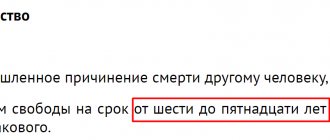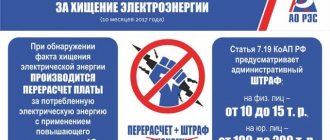The Criminal Code has a concept of especially large size. This definition is found in many articles, and its presence in the case does not bode well. To determine what punishment is provided for a crime in which there is a size of objects, it is necessary to answer the question of how much an especially large size is. The answer to this depends on which article is being considered.
As a rule, this term is used in legal practice. In ordinary life people don't talk like that. Determining the size of the object of a crime allows you to assign a punishment appropriate to the act. Therefore, the law has strict distinctions: significant size, large size and especially large size.
Fraud
The Criminal Code has several categories of crimes that involve theft. Only the conditions under which this act was committed differ.
The theft of the victim's property, if there was deception or the owner trusted the criminal too much, is classified as a criminal activity only if it is proven that the actions were deliberate, that is, the person who committed it had intent. If the evidence, as they say, is available, the Criminal Code of the Russian Federation considers a crime under Article 159 - fraud.
Punishment for violating this law is assigned based on the size of the stolen property, which can be: ordinary (in the Criminal Code - significant), large (one and a half million rubles or more) and especially large (six million rubles or more).
Large size according to the Criminal Code of the Russian Federation
The Criminal Code of the Russian Federation in Chapter 21, dedicated to crimes against property, provides for the provision that a large amount is considered to be the value of property that exceeds 250,000 rubles.
However, below the legislator makes a reservation. The large amount is 1,500,000 rubles for the following groups of crimes:
- related to credit fraud;
- related to the use of payment cards;
- crimes in the insurance sector;
- crimes in business activities;
- computer crimes
The Criminal Code of the Russian Federation in note 4 to Art. 158 provides for the provision that for all crimes provided for in Chapter 12 (crimes against property), a large amount is considered to be the value of property that exceeds 250,000 rubles.
However, there are exceptions to this rule. Thus, a large amount is 1,500,000 rubles for the following groups of crimes:
- related to credit fraud;
- related to the use of payment cards;
- crimes in the insurance sector;
- crimes in the field of computer information.
And for fraud associated with non-fulfillment of a contract in business activities, the large amount of damage is even higher - at least 3,000,000 rubles (note to Article 159 of the Criminal Code of the Russian Federation).
Judicial practice confirms the fact that the qualifying feature in the form of causing major damage when committing, for example, theft, is taken into account when the court considers a criminal case if the total total damage is at least 250,000 rubles.
IMPORTANT! Some crimes may be ongoing or ongoing. For example, an accountant transferred money to an organization into her account for 6 months. Accordingly, when investigating a crime, the entire amount of transfers or, at least, proven episodes will be taken into account.
If not only money, but also particularly valuable works of art were stolen, an examination is carried out to calculate the value of these things.
In addition, notes on the limits of major damage are contained in other chapters of the Criminal Code of the Russian Federation. Thus, for most of the provisions of Chapter 22, which combines economic crimes, a large amount is considered to be an amount exceeding 1,500,000 rubles. But there are exceptions here too - in particular, when held liable for restricting competition (Article 178 of the Criminal Code of the Russian Federation), major damage will be damage in excess of 10,000,000 rubles.
rnaya information.
Judicial practice confirms the fact that the qualifying feature in the form of causing major damage when committing, for example, theft, is taken into account when the court considers a criminal case if the total total damage is at least 250,000 rubles.
Important! Some crimes may be ongoing or ongoing. For example, an accountant transferred money to an organization into her account for 6 months. Accordingly, when investigating a crime, the entire amount of transfers or, at least, proven episodes will be taken into account.
If not only money, but also particularly valuable works of art were stolen, an examination is carried out to calculate the approximate value of these things.
In addition, notes on the limits of major damage are contained in other chapters of the Criminal Code of the Russian Federation. Thus, for most of the provisions of Chapter 22, which combines economic crimes, a large amount is considered to be an amount exceeding 1,500,000 rubles. But there are exceptions here too - in particular, when held liable for restricting competition (Article 178 of the Criminal Code of the Russian Federation), major damage will be damage in excess of 10,000,000 rubles.
Read the material from ConsultantPlus about large amounts of narcotic drugs and psychotropic substances. If you do not yet have access to the ConsultantPlus system, you can obtain access for free for 2 days.
Amendments to Article 159
In addition, significant additions were made to the article in 2015, which make it possible to distinguish between fraud in different areas of life:
- Lending.
- Insurance.
- Receiving payments.
- Computer information.
- Plastic payment cards.
- Entrepreneurial activity.
The larger the conditional amount, the more difficult the punishment. The most dangerous, from a social point of view, fraud on a particularly large scale (in any area), committed by an organized group. The law provides for punishment for such a crime in the form of a fine of up to 500 thousand rubles and a real term in a colony of up to 10 years.
What responsibilities are provided?
The amount of punishment for large-scale fraud is expressed in penalties, which are provided in the range from 100 to 500 thousand rubles. The perpetrator can also be imprisoned for up to six years. The punishment, at the discretion of the judge, is expressed in the amount of the offender’s income - this can be the amount of the total income the offender receives over a period of one to three years. Compulsory labor is applicable, the duration of which cannot exceed five years.
Theft on a large scale is punishable by a fine ranging from 100 to 500 thousand rubles. The amount can also be calculated based on how much income the culprit receives over a period of one to three years. Or the offender is imprisoned for a maximum of six years.
For misappropriation or embezzlement, a fine of 100 to 500 thousand rubles is imposed; the culprit may be deprived of the right to engage in a certain activity or position. This measure is applied at the discretion of the court. Forced labor for up to 5 years or imprisonment for 6 years may also be applied.
Theft
Theft is the theft of property owned by another person by secretly committing unlawful acts against the owner of the property. The punishment for this crime is provided for in Article 158 (theft). Here it is also necessary to distinguish between the size of the stolen property, the types of theft and the categories of persons who violated the law in order to determine the type of punishment. Amount of criminal activity in monetary terms: large – 250 thousand rubles. and above, especially large – 1 million rubles. and more than that.
The most severe punishment exists for an organized group that has committed a crime such as theft on an especially large scale - a fine of up to 1 million rubles and up to 10 years in prison.
The Administrative Code also contains the concept of theft, but on a small scale – up to one thousand rubles. Such a violation of the law is provided for in Article 7.27.
How is the amount of damage determined in conditions of instability of the domestic currency?
In various by-laws, as well as the Letter of the Plenum of the Supreme Court, analyzing the judicial practice of office work on robberies, robberies and thefts, one can find the following rules establishing the procedure for determining the amount of damage.
- The amount of damage is determined by the value of property assets on the date of theft.
- If there is no information about the value of stolen material assets, the investigation turns to experts and makes an assessment based on their findings.
- The amount of damage caused by theft that must be compensated is determined based on the calculation of the value of property assets at the time of the court decision. It is possible to carry out indexation to the date of execution of the court decision, if such a need arises.
- For historical, artistic and scientific values there is a separate procedure for calculating the cost. It is determined on the basis of the findings of the examination, which indicates their significance and cost.
- If disagreements arise, an independent third-party examination is invited.
Seven facts in the article that you should pay attention to:
- On July 3, 2017, amendments were made to the Criminal Code of Russia that significantly changed the amount of damage, if exceeded, liability arises as a result of theft or fraud in business activities.
- If damage amounts to 5 thousand rubles. criminal liability arises. If the amount of damage is less - administrative.
- Persons convicted of damages caused by theft or fraud in business activities have the right to file petitions asking for release or a reduced sentence.
- In accordance with amendments made in 2021 to Article 76.1 of the Criminal Code of Russia, it is possible to mitigate the punishment or cancel it if four criteria are met, for example, compensation for the damage caused before the start of the investigation.
- The amount of damage caused by robbery, robbery or theft is determined by the value of property assets on the date of the commission of the criminal act. If necessary, an appropriate examination is prescribed.
- The 2021 amendments to the Criminal Code of Russia introduced a gradation of the amount of damage into “large” (more than 250 thousand rubles) and “especially large” (more than 1 million rubles).
- Designations such as “minor” or “significant” damage are not used in the legal field and are used only in everyday life.
A good criminal lawyer will help you understand the current situation, choose the right course of action and defend the interests of your client.
Robbery
Robbery is the theft of property that belongs to the victim in an open manner using violence that is not dangerous to health. Since this type of crime closely borders on theft and robbery, it is important to clearly distinguish between them. If theft is a crime directed only at property, it does not affect the health and life of the property owner, then robbery implies slightly different actions.
During a robbery, threats, tying, leaving in a closed area, etc. are possible, that is, actions take place that do not threaten health, but can negatively affect it. Such consequences may include abrasions, scratches, bruises or mild depression. This condition can be classified as minor harm to health.
Article 161 of the Criminal Code of the Russian Federation clearly defines the amount of stolen property in monetary terms: large amount - not less than 250 thousand, especially large amount - more than 1 million rubles. The theft of property worth more than 1 million rubles, which is committed by an organized group, is punishable by a real sentence of up to 12 years.
Robbery
This is the theft of the victim’s property with the use of violence, which causes (or may cause) harm to health. Such actions include, for example, holding the victim under water, suffocation, etc. A mandatory sign of robbery is the presence of weapons or objects similar to weapons or the ability to use them as such.
During the commission of a crime, there may be threats of its use. The characteristic factor that determines a crime such as robbery is not the theft of property itself, but an attack with the purpose of theft. The Criminal Code of the Russian Federation denotes a particularly large amount in the form of an amount of over 1 million rubles. Those convicted under Article 162 serve a sentence of at least 15 years in a strict or special regime colony (recidivism).
Extra large size - how much?
The Criminal Code of the Russian Federation recognizes the value of the victim’s property in the amount of 1,000,000 rubles as a particularly large amount.
In 2012, amendments were made to the Criminal Code of the Russian Federation, according to which for crimes related to fraud in the credit sector, using payment cards, in the insurance sector, as well as in the field of computer information, a particularly large amount is 6,000,000 rubles. In 2021, Art. 159.4 of the Criminal Code - fraud in business. It was replaced by Parts 6 and 7 of Art. 159, which provide for punishment for fraudulent non-fulfillment of a contract, subject to the infliction of large and especially large damage, respectively. According to note 4 to Art. 159, especially large damage for crimes of this nature is an amount of at least 12,000,000 rubles.
These amendments partially decriminalized the actions of entrepreneurs and other persons committing crimes in the above areas, since the threshold for a particularly large amount was raised.
That is, now for causing damage less than 6,000,000 (12,000,000) rubles, fraudsters will not be charged with the qualifying feature in the form of the amount of damage caused as especially large. Sources: Criminal Code of the Russian Federation
Narcotic substances
Trafficking in narcotic drugs is punishable by law. This includes drugs that have psychotropic and intoxicating effects, as well as any derivatives from them. When withdrawing funds that are absolutely prohibited for use, production and storage, any quantity will be considered large.
The list of narcotic and similar substances contains more than 60 items, each of which has its own limit. According to this list and Article 228, an especially large amount is the amount of a prohibited substance that can be legally possessed by persons, over 0.0001 grams. Such drugs include:
- bromamphetamine;
- DOET (dimethoxyethylamphetamine);
- LSD and LSD-25;
- desomorphine and others.
As a rule, for other narcotic drugs the size is considered large if the amount of the detected substance is more than 1 gram.
Crime size
In addition to the above articles, there are others in the Criminal Code. But these are the most common. There are positions on the size of such crimes as particularly large bribes, theft of valuable items and other provisions of the code.
The size of the crime is assessed by experts and is subject to qualification, since determining the amount “by eye” is unacceptable. As for the limit amounts, the court considers cases based on related factors - aggravating or mitigating circumstances.
Reason for amendment
Since additions to Article 159 were introduced this year, it is necessary to consider the prerequisites and consequences of these innovations.
The main reason for the amendments was the practice of initiating criminal cases without statements from the victim. The police's actions in this regard have become so unlawful that the government has decided to limit some of their duties. Now, cases of any type of criminal activity, especially if fraud has been committed on a particularly large scale, will not be initiated without a statement from the victim, even if the crime is obvious.
Previous practice was not selective, and cases were fabricated at the request of third parties or even law enforcement officials. True, criminal punishment is also provided for this, regardless of the fabricated case. In the Criminal Code of the Russian Federation, one can take as a basis articles 299 to 303 - responsibility for illegal attraction, release and falsification.
Many victims, before contacting the police, doubt whether it is worth doing this, since the size may not correspond to the intended punishment. In this case, a natural question arises: how much is large and especially large size? Perhaps the answer to this question determines whether a person will report fraud or not.
As for the areas of crime, here the government distinguishes several categories, which were mentioned earlier. The new law has increased the size of the crime for which punishment follows. If previously a large amount of fraud was considered to be 250 thousand, and Article 159 determined a particularly large amount to be 1 million rubles, now significant figures have changed (1.5 million and 6 million rubles, respectively).
What is considered major damage?
Large amount of damage is an assessment category that was introduced in order to be able to measure the harm caused to a person as a result of an offense.
The concept under consideration influences the punishment applied to the perpetrator. If the court considers a case of theft, robbery or other types of criminal acts directed against property, this qualifying feature is taken into account. When a person has stolen several items, their value for imposing punishment will be calculated in total.
Important! If we are talking about ongoing or continuing acts, all property that was stolen during a certain period of time will be taken into account.
In order to assess the damage caused when not only money is stolen, but also art objects of value, an examination must be carried out.
The state, in the chapter of the Criminal Code of the Russian Federation regulating punishment for committing crimes against property, indicates that a large amount is an amount exceeding 250 thousand rubles (indicated in the note to Article 158 of the Criminal Code). It is worth noting that the code contains a clause according to which major damage is equal to 1.5 million rubles. This provision applies to the situation when we are talking about acts committed in the area of:
- entrepreneurship;
- insurance;
- credit fraud;
- using cards with payment purposes;
- computer technologies.
Large amounts are also mentioned in other provisions of criminal law; this applies to acts committed in the economic sphere. It is established that the damage in question is at least 1.5 million rubles. When it comes to restricting competition, damage exceeding 10 million rubles is considered major.
Death of the victim under Article 159
There are often cases where, to conceal a crime under Article 159, other, no less serious crimes are committed. This could be an act under Article 105 of the Criminal Code of the Russian Federation, part 2, paragraph “k”: murder committed with the sole purpose of concealing the fact of fraud.
In this case, if the victim (corpse) was the person against whom the fraud was committed, the question arises of who will file the complaint. After all, according to the new rules, only the victim can report. In such situations, a relative may be recognized as a victim. And it depends on him whether the persons who committed criminal acts will be convicted only under Article 105, or under all articles, including Art. 159. The particularly large size of the crime or other parameters do not matter here.
Statistics
Regarding the judicial practice of past years on fraud, it is worth noting that in 2011, more than 120 thousand entrepreneurs were convicted in the country, which is every sixth businessman. According to Medvedev, this is a disaster. The fact is that, under the article in the previous edition, both actual fraudsters in the field of business and those who did not intend to fraudulently take possession of the property or funds of third parties could be brought to justice. Gaps in the legislation were taken advantage of by incompetent employees of the Ministry of Internal Affairs and other persons working on “custom” cases.
Special marks
It is obvious that with the adoption of the new law, the corruption component will be practically destroyed. In addition, not only the theft of property will be considered fraud, but also an act that entailed the deprivation of the victims’ right of ownership of real estate. Experts investigating the circumstances of the case must determine the damage caused to the home owner. In this case, the question also arises of how much a particularly large size is. For residential premises, the same rules apply as for other types of criminal activity in terms of property theft.
Features of the amendments
There are some specific features regarding the amendments to Article 159. It is clear that the division of fraud into types was carried out in relation to entrepreneurs and criminals who violated the law “in a big way.” The previously indicated amounts of 250 thousand for respectable businessmen were rather insignificant than significant, and the punishment was quite noticeable. Therefore, to bring it into compliance, theft on an especially large scale and on a large scale in the current version of the law is recognized as a crime for amounts several times higher.
The only exception is articles 159 and 159.2, in which the amount for which the theft was committed remained the same. Article 159.2 deals with the crime of receiving various payments, compensation, subsidies and other government benefits. Concealing important information when applying for social benefits or providing incorrect data (as part of a crime) must be proven in terms of intent.
Thus, the dimension of the crime is important when assigning punishment. The number of persons who committed the crime is also taken into account. The determining factor in the consideration of fraud cases is the established especially large amount - this is how much money (or the quantitative expression of stolen property) is involved in the case.
Fraud, divided into categories in this legislation, also provides for different penalties. For particularly large crimes, Articles 159.1-159.3, 159.5 and 159.6 impose imprisonment for a maximum of 10 years. In Article 159.4, this period cannot exceed 5 years.
Article 159, part 4, is an especially large amount an amount of 1 million rubles or more? Thank you.
The Criminal Code of the Russian Federation in Chapter 21, dedicated to crimes against property, provides for the provision that a large amount is considered to be the value of property that exceeds 250,000 rubles.
However, below the legislator makes a reservation. The large amount is 1,500,000 rubles for the following groups of crimes:
related to credit fraud;
related to the use of payment cards;
crimes in the insurance sector;
crimes in business activities;
crimes in the field of computer information.
Judicial practice confirms the fact that the qualifying feature in the form of causing major damage when committing, for example, theft, is taken into account when the court considers a criminal case if the total total damage is at least 250,000 rubles.
Important! Some crimes may be ongoing or ongoing. For example, an accountant transferred money to an organization into her account for 6 months. Accordingly, when investigating a crime, the entire amount of transfers or, at least, proven episodes will be taken into account.
If not only money, but also particularly valuable works of art were stolen, an examination is carried out to calculate the approximate value of these things.
In addition, notes on the limits of major damage are contained in other chapters of the Criminal Code of the Russian Federation. Thus, for most of the provisions of Chapter 22, which combines economic crimes, a large amount is considered to be an amount exceeding 1,500,000 rubles. But there are exceptions here too - in particular, when held liable for restricting competition (Article 178 of the Criminal Code of the Russian Federation), major damage will be damage in excess of 10,000,000 rubles.
Extra large size - how much?
The Criminal Code of the Russian Federation recognizes the value of the victim’s property in the amount of 1,000,000 rubles as a particularly large amount.
In 2012, amendments were made to the Criminal Code of the Russian Federation, according to which for crimes related to fraud in the credit sector, using payment cards, in the field of insurance and in business activities, as well as in the field of computer information, an especially large amount is 6,000,000 rubles .
This amendment partially decriminalized the actions of entrepreneurs and other persons committing crimes in the above areas, since the threshold for particularly large amounts was raised. That is, now for causing harm less than 6,000,000 rubles, criminals will not be charged with the qualifying feature in the form of the amount of damage caused as especially large.
Important! The Supreme Court of the Russian Federation clarified that the article for fraud in the field of business (Article 159.4 of the Criminal Code of the Russian Federation) refers to special norms and is applied whenever the subject of the crime is an entrepreneur. The object should be actions specifically in the entrepreneurial sphere (for example, failure to fulfill the conditions for payment of a contract on a particularly large scale). It does not matter with whom this agreement is concluded - with the state, with another legal entity or with a citizen.
However, despite the fact that the Constitutional Court was the initiator of the introduction of this norm (Article 159.4 of the Criminal Code of the Russian Federation), it still does not agree that in this article the punishment for fraud in the business sphere is milder than in another article providing for punishment for fraud ( Article 159 of the Criminal Code of the Russian Federation). In May 2015, the Ministry of Internal Affairs introduced draft amendments to the Criminal Code with the aim of toughening punishment, but the State Duma of the Russian Federation has not yet adopted them.
Did the answer help you? Yes No







